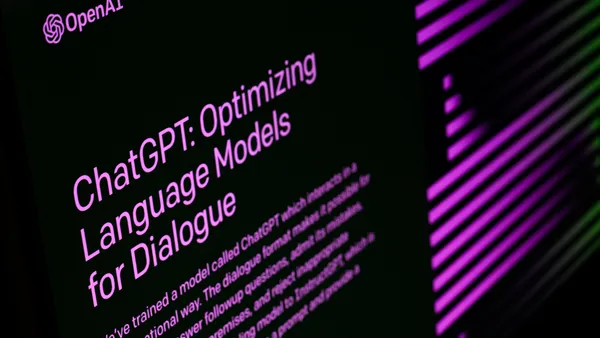Fewer than 30% of high school students feel “very prepared” to pursue a postsecondary pathway, whether a traditional four-year college degree, work or other options, according to a June 10 report from Jobs for the Future, Gallup and the Walton Family Foundation.
Even among students interested in a specific pathway, only 46% said they feel “very prepared,” the report found.
“In order to build a stronger economy, we have to help young people understand not just what jobs are out there, but what pathways are available to them to pursue and succeed in those jobs,” said Maria Flynn, CEO of Jobs for the Future.
“Young people need support exploring their career interests and education pathways at a much earlier age so they graduate high school with a tangible understanding of the kind of training and skills they’ll need for the jobs of tomorrow,” Flynn said.
In a survey of Generation Z high schoolers and their parents, both groups were most aware of two traditional post-graduation pathways: pursuing a four-year college degree and joining the workforce. About a third of high schoolers and more than half of parents said they knew “a great deal” about bachelor’s degree options and paying jobs.
However, both said they didn’t know as much about other pathways, such as certification programs, internships, apprenticeships, military options or entrepreneurship. At least half of parents said they know “only a little” or “nothing at all” about pathways other than college degrees and paid jobs.
Notably, parents were the most trusted source for post-graduation guidance, with 90% of students saying they relied on their parents for information about degree and job pathways. After that, students said they relied on teachers (54%), other family members (52%) and school counselors (48%). Fewer than a third of students said they trust career websites or social media posts from strangers.
Among recent high school graduates, fewer than half said their school prepared them for any option other than college or a job. Nearly 1 in 10 said their high school didn’t prepare them for any option.
Although students pointed to in-person college visits, internships and jobs as the most helpful experiences for learning about their options, many hadn’t participated in those options. About half of students said they’ve never had a job or internship, and more than a third said they’ve never gone for a college visit.
More than half of hiring managers say recent graduates are unprepared for the workforce, and 1 in 6 say they’re reluctant to hire from the Gen Z cohort, according to a report from Resume.org. Employers expressed concerns about a lack of professionalism, excessive phone use and poor time management skills.
Compared to five years ago, employees and executives alike say entry-level workers seem unprepared for their jobs, according to a General Assembly survey. Leaders cited a lack of training in both soft skills and technical skills, yet employees and executives also said companies don’t provide enough training to new hires, the report found.
Additional post-graduation pathways, including “earn-and-learn” programs such as apprenticeships, internships and work-study programs, can help workers gain skills and experience while earning a paycheck and benefit employers through higher retention and fewer workforce gaps, according to a Government Accountability Office report. Employers named barriers such as administrative burden and cost, which some federal agencies are trying to address with new initiatives, GAO found.















